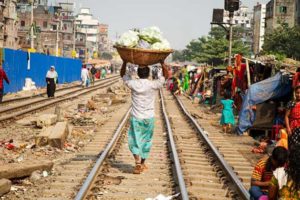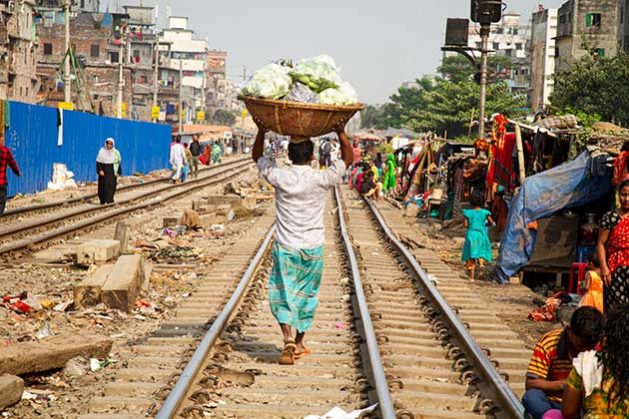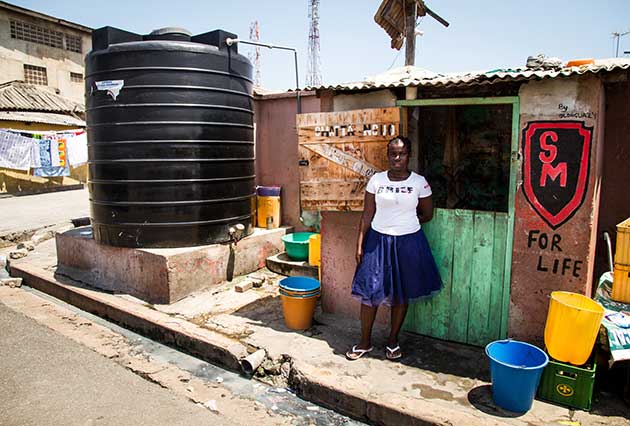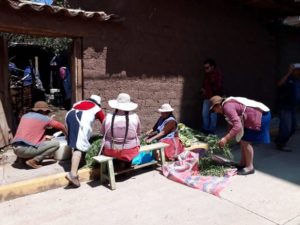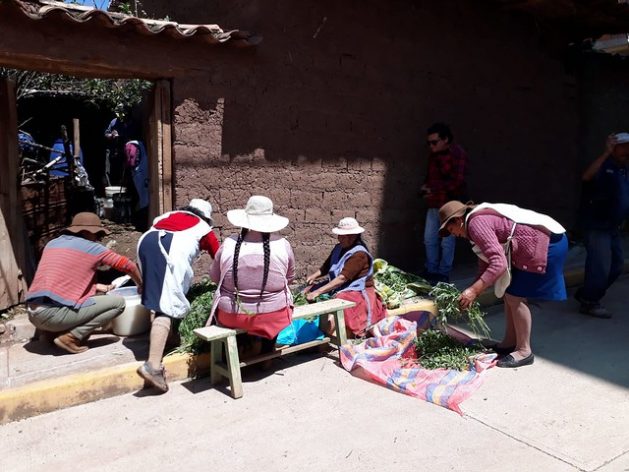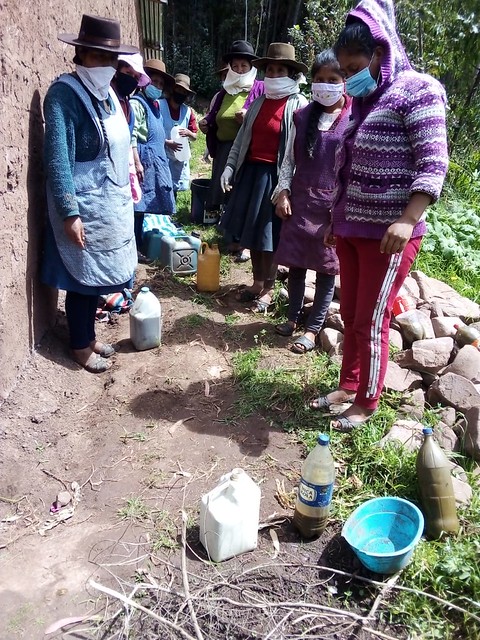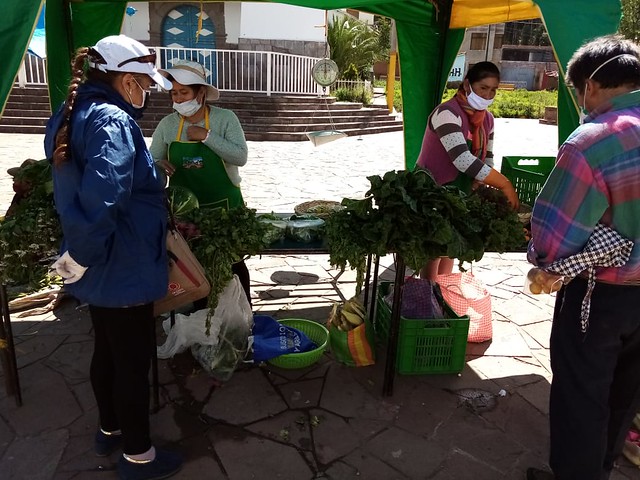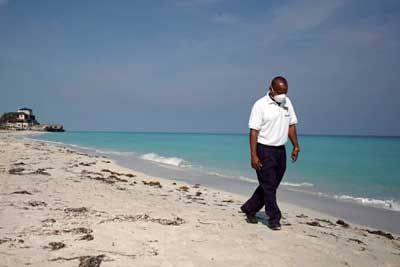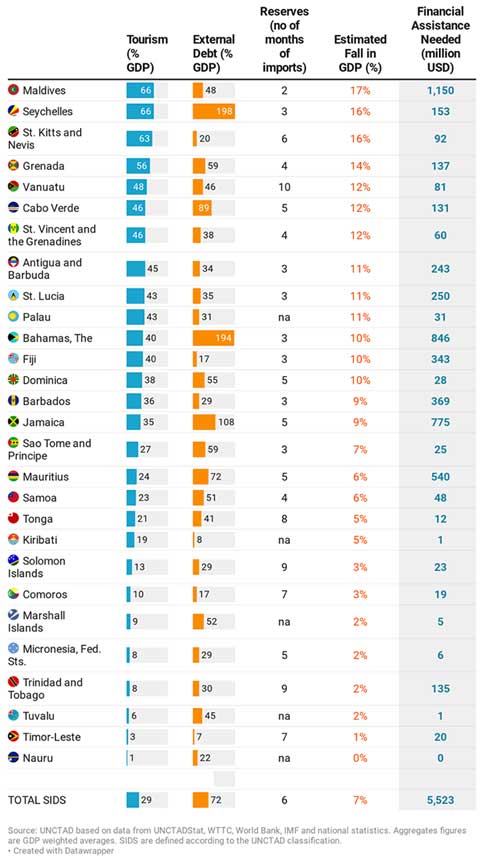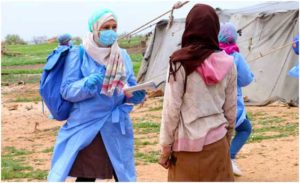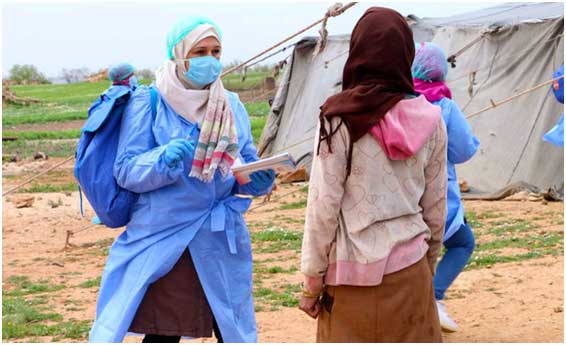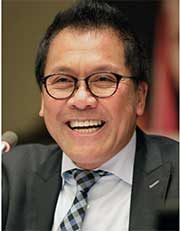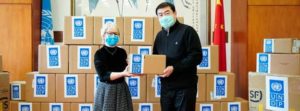
Asia-Pacific, Civil Society, Development & Aid, Featured, Global, Headlines, Health, TerraViva United Nations
Dr Simi Mehta is the CEO and Editorial Director of Impact and Policy Research Institute (IMPRI), New Delhi. She can be reached at simi@impriindia.org.
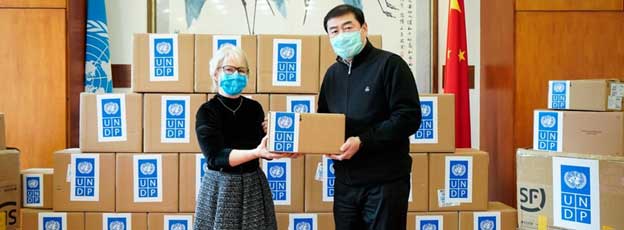
Handover ceremony at UN compound in Beijing for donation of critical medical supplies to the Chinese government. Credit: UNDP China
– Coronavirus outbreaks in China and later across the globe have been unprecedented in both its scale and impacts. In the era of changing world order, this pandemic has drawn the global attention towards the threats posed by the non-traditional security challenges.
All military prowess and records of economic progress have been rendered impotent vis-à-vis the coronavirus disease. With a total of around 5 million cases worldwide (and only about 83,000 in China), the wheels of power display of major powers like the US, China, Russia, Spain, France, Germany, Italy have come to a grinding halt.
The objectives of national health policy, health security of the countries, including the concept of collective health security of the World Health Organization (WHO), and the United Nations have raised questions on their seriousness, claimed efficacy and efficiency.
Regarding the origins of the virus, there have been different narratives. This article analyses the discourse claiming that research and development programmes for medicine, vaccines, and treatment for health risks and planning and investment for intensive research on bioweapons by major powers led to the creation of the dangerous strand of contagion called the novel coronavirus.
Allegations on China
There is no denying that the place where it all originated was in Wuhan, China. Thousands of people began to suffer with a respiratory illness that could not be cured. The WHO has described coronavirus as part of the family of viruses, which ranges from the common cold to Middle East Respiratory Syndromes (MERS) and SARS.
It has the capability to transmit between animals and humans. Very soon, a school of thought contrary to the claims of the Chinese government that it was in the wet market selling exotic and wild animals- including bats, that was the cause of this pandemic, began to emerge.
However, counter-claims posit that The Wuhan Institute of Virology National Biosafety Laboratory in the vicinity of the wet market had deliberately created this virus. What raises arguments in favour of the counter-claims include: China did not raise an alarm globally about the existence, leave aside spread of the virus until major outbreaks were reported from late January 2020 onwards.
Various conspiracy theories have been circulating that this virus was made to escape the laboratory as bio-weapons either by accident or design. Some reports have also claimed that this virus was originally stolen by Chinese agents from Canadian laboratory in July 2019, which has level 4 of biosafety- dealing with the most dangerous pathogens for which there are few available vaccines or treatments, similar to that possessed by the Wuhan laboratory.
Further, it has rejected international fact-finding mission into its country. Newspapers like the Wall Street Journal and The New York Times and the Washington Post have suffered collateral damage and some of their employees have been asked to wind up their operations in the country.
Even academic research papers on coronavirus has borne the brunt by the gag-order of the Chinese authorities to intervene in the independence of the scientific process. Those research articles focusing on the COVID-19 have to now undergo extra vetting before they are submitted for publication.
As a result, the initial global empathy for the Chinese suffering from the wrath of this virus steadily turned into suspicion and panic. This culminated into pent up anger seeking reparations from China for being culpable for the origin and spread of COVID-19.
Unfazed by Chinese criticism, US President Donald Trump eloquently named the coronavirus as the Chinese virus. He has also accused the WHO of siding with China in hiding the facts and suspended its contribution to the multi-lateral body and said that the WHO “should be ashamed of themselves because they are like the public-relations agency for China.”.
Calls for an international investigation to know the ‘truth’ behind the origin and spread of the virus have become intense. With its one-party authoritarian system, China was initially on the defensive and flagrantly refused all such calls; which, in effect added to the case in point that there is ‘something’ that it wanted to hide from the rest of the world.
However, with growing international pressures and the most recent draft resolution led by Australia and the EU and supported by 122 countries at the World Health Assembly of WHO, China finally relented and agreed to the call for a “comprehensive review” of COVID-19 pandemic in an “objective and impartial manner”.
It is even pointing to the proactive help it is providing to several countries, in terms of sending protective gears, face masks, gloves, etc. However, complaints have been raised as several of these have malfunctioned and/or were defective.
Conclusion
In 1919 George A. Soper1 wrote that the deadly Spanish Flu pandemic that swept around the earth was without any precedents, and that there had been no such catastrophe ‘so sudden, so devastating and so universal’. He remarked that, “The most astonishing thing about the pandemic was the complete mystery which surrounded it. Nobody seemed to know what the disease was, where it came from or how to stop it. Anxious minds are inquiring today whether another wave of it will come again”.
With close to 3 million positive cases and around 0.2 million deaths worldwide, the coronavirus has compelled people to draw parallels with the history of lethal viruses like the 1918 Spanish flu.
This great human tragedy created by COVID-19 is compounded because of the absence of a definitive cure and/or a vaccine. Experts opine that it would be possible only by the first quarter of 2021. The prevailing obscurity in China with respect to the causes of origin and global spread of the virus has led to conspiracy theories to emanate from various parts of the international community. Demands have begun to be made to hold China accountable for the health crisis and that it should pay the countries of the world for their health and economic hardships.
Trump has indicated that the US has begun its investigations to claim ‘substantial’ damages from China as the ‘whole situation could have been stopped at the source’. The champion of having China included in the world system- Henry Kissinger warned that COVID-19 was a danger to the liberal international order.
Even a veteran Cabinet Minister of Government of India, Nitin Gadkari stated in an interview to a private news channel that the coronavirus is ‘not a natural virus, rather it emerged from a lab’.
This, perhaps explains India’s cautious next steps of charging its northern neighbour China as the country responsible for the manufacture of the virus that has brought incredible and unprecedented mayhem in the lives, livelihoods and economies around the world.
Therefore, it would be in the best interests of China to ensure transparency and allow international investigations into the disease, as it is totally unbecoming of permanent member of the UN Security Council wielding veto powers.
The worldwide panic created by the prevailing health insecurity would redefine the meaning, definition and practical implications for programmes and policy of all countries of the world. Putting it into perspective, the global health management body- the WHO needs to be reformed, and so should the UN Security Council.
It remains to be seen how the world navigates through the crisis and whether comprehensive public health would figure in their national security agendas in the post-COVID-19 world order. Nonetheless, it is time that the multilateral agencies take suo moto cognizance of the havoc created by China and act as per the norms of international law for ensuring collective security.
1 Major George A. Soper was Sanitation Engineer with Department of Health, USA. His area of specialty included study of typhoid fever epidemics. He was also the managing director of American Cancer Society from 1923 to 1928.

